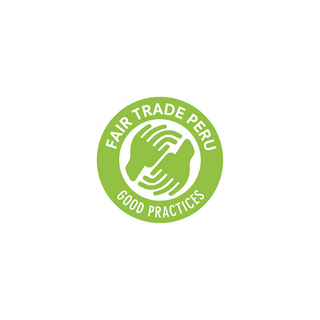Fair Trade is a movement that aims to promote ethical and sustainable practices in global commerce. It is an alternative approach to conventional trade, focusing on fair prices, safe working conditions, and sustainable production methods. The goal is to create a more equitable and just trading system that benefits both producers and consumers. Fair Trade emphasizes transparency, empowerment, and community development.
Fair Trade certifications and standards
Fair Trade practices are crucial for several reasons. Firstly, they provide a fair and stable income for producers, particularly those in developing countries. By paying fair prices for their products, Fair Trade ensures that producers can cover their costs of production and improve their livelihoods. Secondly, Fair Trade practices prioritize safe and healthy working conditions. This means that workers are not exposed to hazardous chemicals or exploitative labor practices. Lastly, Fair Trade supports sustainable production methods, such as organic farming or responsible sourcing, which help protect the environment and preserve natural resources for future generations.
To ensure the integrity of Fair Trade products, various certifications and standards have been established. These certifications guarantee that products meet certain social, environmental, and economic criteria. For example, the Fairtrade International certification ensures that farmers receive a fair price for their crops and adhere to environmental sustainability requirements. Other certifications, such as the Fair Trade Certified label, focus on labor standards and empower workers. These certifications provide consumers with the assurance that the products they purchase have been produced in a socially and environmentally responsible manner.
Fair Trade vs conventional commerce practices
Fair Trade practices differ significantly from conventional commerce practices. Conventional commerce often prioritizes profit maximization at the expense of social and environmental considerations. It relies on exploitative labor practices, low wages, and unsustainable production methods. In contrast, Fair Trade practices emphasize fair wages, safe working conditions, and sustainable sourcing. Fair Trade also promotes transparency and accountability throughout the supply chain, ensuring that consumers have access to information about the origin and production methods of the products they purchase. By supporting Fair Trade, consumers can make a positive impact by choosing products that align with their values.
Supporting Fair Trade products offers numerous benefits for both consumers and producers. For consumers, Fair Trade products provide the assurance that their purchase is contributing to positive social and environmental impact. They can enjoy high-quality products while knowing that the producers behind them are being treated fairly and that the environment is being protected. Fair Trade products also often have unique stories and cultural significance, adding value to the consumer's experience. For producers, Fair Trade provides access to fair markets, better prices, and opportunities for community development. It empowers marginalized producers, particularly those in developing countries, to escape poverty and improve their standard of living.
Numerous organizations and initiatives are dedicated to promoting Fair Trade practices globally. Fairtrade International, as mentioned earlier, is one of the leading certification organizations. It works with producers, businesses, and consumers to ensure fair trade standards are met. The World Fair Trade Organization (WFTO) is another prominent organization that promotes Fair Trade principles and supports marginalized producers. Many countries also have their own Fair Trade networks and initiatives that advocate for fair trade policies and raise awareness among consumers SGS Peru is such an example of an organization that provides Fair Trade Practices Certifications.
Responsible sourcing of Vicuna Wool
Vicuna wool, derived from the fleece of the vicuna, a South American camelid, is a prime example of a sustainable and ethical choice in the fashion industry. Vicuna wool is highly prized for its luxurious softness, warmth, and durability. However, due to overhunting and habitat destruction, the vicuna population dramatically declined. To protect this endangered species, strict regulations were put in place, and the harvesting of vicuna wool became tightly controlled. Today, vicuna wool is sourced sustainably, ensuring the welfare and conservation of the vicuna while providing economic benefits to Andean communities.
The significance of Vicuna Wool in Andean communities
In the Andean regions of Peru, Bolivia, and Chile, vicuna wool has deep cultural and economic significance. For centuries, the indigenous communities living in these areas have relied on the vicuna for their livelihoods. The sustainable harvesting of vicuna wool provides a source of income for these communities, supporting their economic development and preserving their traditional way of life. By choosing products made from vicuna wool, consumers can directly contribute to the well-being of these communities and help protect their cultural heritage.
Responsible sourcing of vicuna wool involves ensuring that the harvesting and processing of the wool are conducted with the utmost care for the welfare of the animals. This includes implementing strict regulations and monitoring systems to prevent overexploitation and ensure sustainable population management. It also involves working closely with local communities to provide training and support for responsible herding practices. By supporting products made from responsibly sourced vicuna wool, consumers can contribute to the conservation of this endangered species and promote sustainable livelihoods in the Andean communities.
Our Sourcing is certified
At Qapaq, we are proud to say that our sourcing partners have the Fair Trade Practices Certification provided by SGS Peru. We are proud of all the people involved in the supply chain.. We prioritize the use of responsibly sourced materials, including vicuna wool, to ensure that our products meet the highest ethical and environmental standards. By choosing our products, you can be confident that you are making a positive impact on the lives of producers and the planet. Join us in supporting Fair Trade and contributing to a more equitable and sustainable world.
Conclusion
Fair Trade is a powerful movement that seeks to transform the global commerce landscape. By prioritizing fair prices, safe working conditions, and sustainable production methods, Fair Trade practices aim to create a more equitable and sustainable trading system. Vicuna wool exemplifies the positive impact of Fair Trade, providing a sustainable and ethical choice for consumers while supporting the economic development of Andean communities. By supporting Fair Trade products, you can make a difference and contribute to a more just and sustainable world. Choose Fair Trade, choose a better future.








